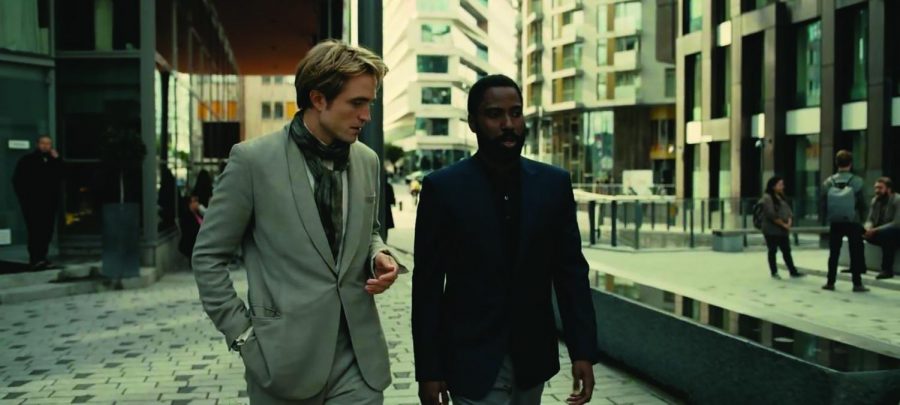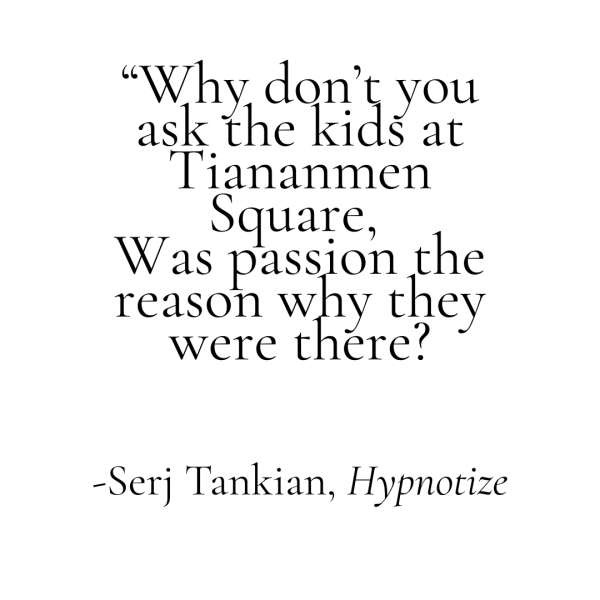Nolan’s Tenet both thrills and confuses
Neil (Pattinson) calmly explains that he’d like to crash a plane.
Movies of today all seem to be reboots, remakes or comic-book based. But Christopher Nolan’s Tenet is something truly original — a new kind of movie that will take the viewer by surprise, and undoubtedly leave them with a seemingly infinite string of unanswered questions.
The premise is simple: World War III must be prevented, and a secret agent known only as The Protagonist (John David Washington) is trying to do so with the agency he works for, which is called Tenet. But, of course, as proven by some of Nolan’s other works like Inception and Interstellar, it’s absolutely not that simple. World War III must be prevented, but to do so, people must bungee-jump off buildings in the dark. A cheese grater must be weaponized. Michael Caine’s character must be insulted just because he’s English. And the very flow of time must be manipulated because people from the future are trying to kill those of the present day.
“Don’t try and understand it,” one of the scientists tells The Protagonist. Maybe that quote was directed at audiences as well.
Despite the hard-to-follow content, Tenet is still a good movie. Washington is fantastic as The Protagonist, being calm, collected and cool in the face of all danger. He even throws in a few one-liners that successfully bring a bit of lightheartedness to the film’s intensity. Working with The Protagonist is Neil (Robert Pattinson), a fellow agent who, instead of sparkling shirtless in the forest of his Twilight films, sparkles intellectually in scientific laboratories with a Master’s degree in physics. Neil is responsible for explaining a lot of the scientific aspects of the film. Together, they have to stop Andrei Sator (Kenneth Branagh), a Russian weapons dealer who works with the people from the future. All cast members perform well in their roles, and the acting is one thing that really makes the movie.
But of course, what’s a spy movie without thrilling action, innovative camera angles and beautifully-choreographed fight scenes? If that’s what one expects from this movie, it does not disappoint. Not only does the viewer wonder what exactly is going on, but one will also want to know how Nolan achieved such peak cinematography. He relies mostly on practical effects, using less than 300 visual effects shots in the movie. That’s less than most romantic comedies. On top of that, not one green screen was used in the film. Nolan chose to use the Location Shooting method — taking the cast and crew to film in places such as Estonia, Italy and Mumbai. Most of what is shown on the screen was also happening in real life on camera, and that is the main thing that makes this movie great.
The main problem with this production seems to be the sound balance. Ludwig Göransson (known for the soundtracks of Marvel Studios’ Black Panther, and the Disney+ show The Mandalorian) pleases once again with Tenet’s score. However, there are some very big BLAMs in the music, which in some scenes can drown out dialogue that seems vital to the story. Overall, the whole thing seems a little loud.
But a little thing like music volume doesn’t dampen the positive aspects of the film. Tenet is a solid 4 out of 5 and will meet the expectations of anyone who likes movies that involve action or science fiction, or of anyone who wants a good fictional thrill for the first time in 2020.











